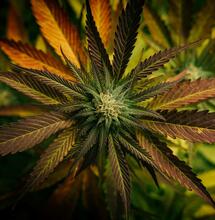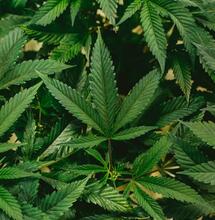How to Maintain a Pest-Free Cannabis Garden

Summertime means hot, sunny days, long hours in the garden or grow room and, unfortunately, bugs! These tips can help to prevent invaders.
Summertime means hot, sunny days, long hours in the garden or grow room and, unfortunately, bugs! These tips can help to prevent invaders.
|
Household staples can sometimes help with cleaning tasks, such as clearing slow drains (which can entice unwanted pests) |
Most growers, whether beginners or those with experience, know how important it is to keep a grow room or garden plot clean. Problems arise with the invasion of pests, such as crawling or flying insects, so how can gardeners prevent these commonly-occurring issues? Here are some precautions that may come in handy during the hot, humid summer months.
Let us begin by stating the obvious: flies and other insects are a normal, albeit annoying, part of life. They can, however, cause contamination issues and lead to other problems, in addition to potentially making people sick. Fruit flies and house- or stable flies can be difficult to get rid of, so it is best to halt the invaders before they are able to fully infest your growing or living space, which for many people is the same location.
Whether you grow indoors or out-, it should be common knowledge that food and drink do not mix well with gardening. In the case of an outdoor grow plot, eating and drinking (with the exception of water, especially in the warm springtime and hot summer months) should not be combined with gardening activities. Leave your snacks in the kitchen as a waiting reward for your hard work.
If your Cannabis garden is in close proximity to your edible garden, be sure to frequently check the fruit bushes or trees and veg plots for soft or rotting produce and remove it immediately, as failure to do so will attract a multitude of pests to your ganja grow.
Those with indoor gardens, especially growers who utilize a space inside their own home as a grow room, need to be particularly careful when and where food and beverages are consumed. Clean, organized and careful growers never eat or drink in the same room as their Cannabis plants, as the potential for contamination is simply too great. Crumbs on the floor can attract ants; even the tiniest drops of juice or soda can result in the additional attraction of fruit flies and houseflies. As an extra precaution, it is a good idea to thoroughly wash your hands after meal breaks, as you may inadvertently transfer a consumable substance onto your plants or growing tools/surfaces.
If your grow room is indeed inside of your home, be sure to store all fresh produce carefully and accordingly. In the wintertime, it may pose no problem to keep fresh produce in bins in the kitchen; as the weather heats up, however, unwelcome pests will be drawn to the smell of fruits and vegetables and you may want to consider transferring such produce to the refrigerator for storage. Rotting or even slightly questionable food should be immediately removed from the refrigerator, cupboards or bins, as these act as an invitation to household pests that are much easier to attract than to remove.
In the summertime, you may have to change your routine to counter the warmer weather, which is conducive to breeding for many species of insects. One such change would be to directly transport kitchen scraps or other indoor compost straight to your outdoor compost pile, instead of using a kitchen compost bin. Outdoor compost piles should be turned frequently and located as far away from the house as possible. If you would prefer to stick with your indoor kitchen scrap bin, make sure that it is regularly, thoroughly cleaned and that all garbage cans have tightly-fitting lids. It may also be helpful to scrape dirty plates or other food waste into small plastic bags, which can be tied off and then placed into your regular garbage receptacle. If need be, take out the garbage much more often than you do in the wintertime.
Wash any dirty dishes immediately, as the decaying food residue will certainly tempt diners of the winged variety. Any empty cans or bottles bound for the recycling bin should be thoroughly rinsed and immediately removed to the appropriate outdoor storage. Outdoor garbage cans and recycling bins should be regularly cleaned and maintained; even if you thoroughly rinse your recyclables before binning them for pick-up, it is still important to preempt possible infestations by reducing odors and residue. Windows should be screened and doors kept closed, whenever possible.
|
Natural cleaning products are available, but for persistent or hard-core cleaning jobs, chemicals may have to be employed |
With regards to outdoor gardening spaces (such as sheds) or indoor grow rooms (whether industrial or domestic), surfaces should be kept fresh and uncluttered so that they may more easily and frequently be cleaned and sterilized. Any tools or accessories, such as pots, harvesting equipment, measuring instruments, pH meters, plant tags, etc., should be cleaned on a regular basis, especially right after use or just before long periods of storage.
To prevent cross-contamination, shower immediately after visiting another grow space or garden - this will keep you from transferring pests into your clean grow space. Consider leaving a clean pair of gardening shoes near the entrance to your grow area and switch to these from your everyday footwear before gardening, especially if you have dogs or horses or spend a lot of time outdoors. Some folks even cover their clothes with disposable painter's coveralls before entering their grow space.
In addition to preventing cross-infestations, it is essential to adopt an almost clinical approach to maintaining a clean nutrient assortment. Compost brewers may emit tantalizing odors that invite infestations, so be sure to control this as much as is possible, potentially by simply relocating your buckets to an area that is not near to your plants. Bags, bins and bottles (and their caps) can drip, leak or crack, so be vigilant about the current state of your storage containers. Any drips or spills - whether on the bottles themselves or on the floor, tables/counter tops or grow equipment - should be immediately addressed and thoroughly cleaned.
Regarding cleaning equipment, items used to clean up spills or sterilize your grow space should be regularly cleansed and sterilized themselves, if not replaced entirely. Mops, sponges and rags or cloths are frequent sources of nasty odors and unwelcome guests, which may lead to bigger problems in the garden if they are not kept pristine.
If you keep your grow space organized, cleaning and sterilizing can become a regular, hassle-free part of your scheduled duties, leading to stronger, healthier gardens and a much lower chance of infestation.



